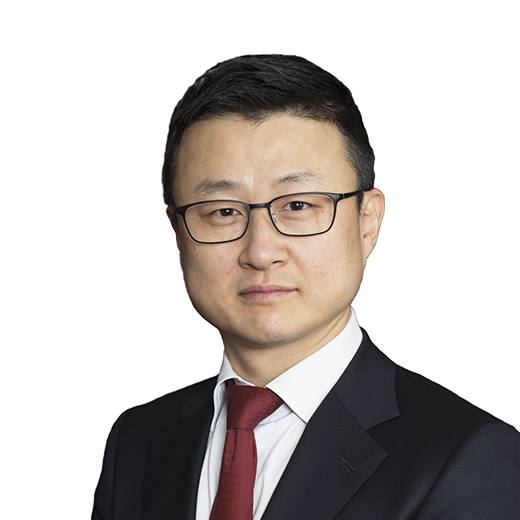2025/01/21
Environmental services and waste management – expert interview with Howard Lee
BDA Partners advised IMM’s consortium on their successful US$1.6 billion acquisition of Ecorbit from KKR and Taeyoung Group which closed in December 2024.
Ruari Sinclair and Mark Webster from BDA Partners’ Sustainability team sat down with Howard Lee, BDA’s Head of Seoul, to discuss Korea’s largest M&A transaction of 2024, IMM’s acquisition of Ecorbit, the waste management leader.
MW: Ecorbit was both Korea’s largest M&A deal of 2024 and its largest waste management company (by revenue & EBITDA); talk us through the transaction and BDA’s role?
HL: The acquisition of Ecorbit by the IMM consortium is a milestone in Korea’s waste management sector, highlighting the growing strategic significance of environmental services and its evolving dynamics. As the #1 national player, Ecorbit presented unique opportunities – and challenges – that required a meticulous approach to maximize value.
BDA took a critical role in structuring and executing this complex transaction, identifying growth drivers and proactively addressing material transaction risks. We also developed a robust financial model that analysed various growth scenarios across Ecorbit’s multiple business units. For example, the landfill business unit faced continuity risks as capacity decreased, requiring careful analysis and strategic planning. Our input enabled IMM to build confidence in Ecorbit’s ability to deliver scalable, sustainable growth.
BDA’s support extended throughout due diligence and negotiation, ensuring the smoothest possible path. The acquisition not only solidified Ecorbit’s growth trajectory under IMM’s ownership but also set a new M&A benchmark in Korean waste and environmental services. From an in-house perspective, it was good to build on our established track record in the sector, including our role in SK ecoplant’s acquisition of EMC in 2020, which was also Korea’s largest waste management platform transaction at the time.
RS: What is the market opportunity for the Korean waste management sector today, and how has it evolved over the past five to ten years?
HL: Since 1960, Korea’s economy has grown significantly (GDP US$3.96bn 1960 to US$1.71t 2023), driving the expansion of the waste management industry alongside urbanisation and industrialisation. While total waste discharge rose steadily until 2021, COVID-19 caused a temporary decline in 2020-2022. From 2023, volumes have resumed their growth.
Substantial market potential still lies ahead, given ever-stricter environmental rules, increasing demand for advanced processing technologies, and a growing emphasis on sustainability. Over the past decade, we have seen the industry shift from a fragmented landscape to a more consolidated market dominated by large-scale operators. This transformation has been propelled by regulatory pressures, via measures such as the Waste Control Act and Circular Economy Legislation, rising operational costs, and heightened investment in infrastructure and innovation.
Consumer awareness and corporate ESG initiatives have further reshaped the sector, driving demand for sustainable waste solutions such as recycling and waste-to-energy technologies. Leading companies like Ecorbit have capitalized on these market trends by offering integrated waste management services to customers, addressing diverse needs from municipal to industrial waste. This convergence of regulatory, consumer, and corporate priorities has positioned Korea’s waste management sector as a vital contributor to the country.
Total Korean waste discharge volume, unit: ton in millions

MW: What are the key characteristics of the Korean waste management sector, compared to other countries?
HL: Countries exhibit notable differences in waste management practices due to regional and historical factors. The United States relies on landfills, Japan uses incineration, Germany leads in recycling due to limited natural resources, and France has adopted balanced approaches integrating multiple methods.
Korea’s reported recycling rate appears high (~90%), but this includes energy recovery from incineration; many other countries exclude this. The “actual” material recycling rate is closer to ~20%, with landfill and incineration accounting for ~80% of waste management.
Historically fragmented, Korea’s waste management sector has transformed since the 2010s with private equity and corporate involvement. Ecorbit itself has optimized waste treatment and spearheaded operational efficiency, technological advancement, and sustainable practices. The sector’s competitive dynamics require major players to keep developing to secure future success.
Method of waste management by country, unit: %

RS: How do you see the future of the Korean waste management market?
HL: The Korean waste management market is poised for significant growth, driven by government initiatives promoting a circular and environmentally friendly economy. These efforts focused on waste reduction, recycling, and material reuse, create a favorable environment for the sector. As sustainability becomes central, even more consolidation among key players is expected, with larger firms expanding portfolios and geographic reach to capture market share, further optimizing operations.
Technological advancements in landfill, recycling, resource recovery, and waste-to-energy solutions create new opportunities for market entrants. These innovations provide operational efficiencies and enable new business models, addressing the growing demand for sustainable practices. Companies adopting advanced technologies will be well-positioned to meet evolving consumer and regulatory needs.
Decarbonization efforts, alongside stricter regulations, are also reshaping the market, prompting operators to adopt more sustainable practices and optimize processes to comply with environmental standards. This professionalization of the sector emphasizes sustainability, compliance, and long-term value creation.
Korea’s increasingly sophisticated waste management market is attracting interest from cross-border investors. The country’s commitment to sustainability and its proactive environmental stance make it an appealing destination for global capital, with foreign investments playing a key role in accelerating sector development and innovation.
MW: Why are financial sponsors attracted to the Korea waste management sector?
HL: Financial sponsors like the Korean waste management sector due to its resilience, scalability, and alignment with long-term sustainability / circular economy trends. It offers stable, recurring revenue streams, supported by government regulations and the essential nature of its services. Additionally, technological advancements and operational efficiencies present good growth potential, driving profitability and market share expansion.
Furthermore, there are unique opportunities for financial sponsors to create large-scale, vertically integrated platforms. As smaller players merge or are acquired by larger firms, a more concentrated and professionalized market is evolving, where economies of scale, broader service offerings, and geographic expansion all drive value creation. So, by investing in waste management, sponsors can leverage both the sector’s growth potential and its ability to generate stable returns, making it an ideal target for long-term, value-driven investments.
RS: We have seen several waste management transactions in Korea over the last few years – do you see a strong pipeline of more assets coming to market?
HL: 2024 was a standout year for Korean waste and environmental services M&A. Ecorbit aside, KJ Environment was acquired by EQT from Genesis Private Equity for US$700m+, Affirma secured J Entec for US$392m and Glenwood bought three waste management businesses from Bubang. These and earlier private equity investments will need a future exit and this will drive a good level of M&A activity for the sector in the coming years.
Growing private equity investor interest has also encouraged companies to streamline operations and divest non-core assets. Meanwhile, the success of landmark deals like Ecorbit has boosted market confidence, paving the way for similar large-scale transactions. We therefore anticipate increased activity in niche segments such as landfill, hazardous (chemical) waste management, industrial recycling, and waste-to-energy facilities.
BDA’s regional perspective:
We continue to see increased M&A activity and interest across Asia in the waste and environmental services sector. Asia generates about 60% of global municipal waste with c. 1.3 billion tons generated annually, expected to grow to >2.4 billion tons by 2050. This expansion is largely driven by:
- Expanding populations and continued urbanisation – especially in South and Southeast Asia
- Relatively robust economic growth, boosting income levels – leading to higher consumption and generating more waste per capita
- Greater industrial manufacturing activity and e-waste generation with increasing technology use
- Lack of integrated and sufficient waste management and recycling systems resulting in lower waste collection rates especially in low to middle-income regions
- The average municipal solid waste collection in East and Southeast Asia rate is 75% compared to >98% in Europe and North America
- Stricter regulatory regimes driving opportunities in waste recycling technologies and processes – and transactions
If you would like to speak to our Seoul or Sustainability sector teams to learn more about how we can help you achieve your M&A objectives – in waste management or beyond – please contact any of the team members below.
About BDA Partners
BDA Partners is the global investment banking advisor for Asia. We are a premium provider of Asia-related advice to sophisticated clients globally, with 30 years’ experience advising on cross-border M&A, capital raising, and financial restructuring. We provide global reach with our teams in New York and London, and true regional depth through our seven Asian offices in Mumbai, Singapore, Ho Chi Minh City, Hong Kong, Shanghai, Seoul, and Tokyo. BDA has deep expertise in the Chemicals, Consumer & Retail, Health, Industrials, Services, Sustainability and Technology sectors. We work relentlessly to earn our clients’ trust by delivering insightful advice and outstanding outcomes.
BDA Partners has strategic partnerships with William Blair, a premier global investment banking business, and with DBJ (Development Bank of Japan), a Japanese Government-owned bank with US$150bn of assets. bdapartners.com
Latest insights

2025/04/21
Women’s health matters: Unlocking investment opportunities beyond...
In 2023, the global women’s health market was val […]

2025/04/17
Southeast Asia Healthcare Distribution: Delivering value
We assessed both the medical devices (Medtech) and […]

2025/04/09
Wind thought piece – Onshore tailwinds
The global wind industry is entering a new era of growt […]

2025/01/10
Japan’s $230bn M&A boom will get even bigger: Jeff Acton quoted in...
Jeff Acton, Co-Head of Tokyo, BDA Partners, was quoted […]



